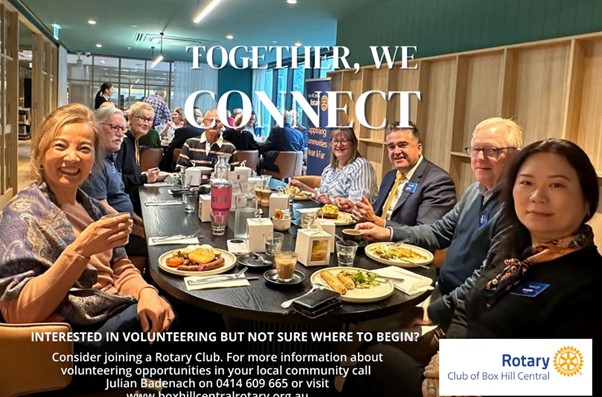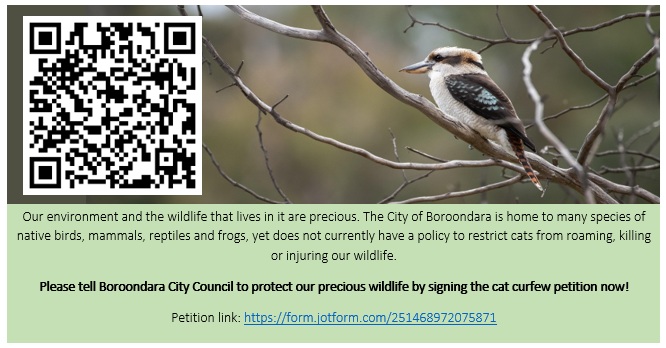
Latest Contributions
We are sure you will agree that waiting around to get the good stuff has got knobs on it. This post will give you an early glimpse of some of the articles we will be including in the next two-monthly edition of the newspaper.
We will continually refresh this post as we receive new contributions.
If you have a burning issue that you want to tell the world about, please sit down and start writing now. When we receive it, we will immediately consider it for publication here and also later in the newspaper. If you have any comments on articles published here, please email us at eastsidernews1@gmail.com.
We would also like to keep you informed about what is happening in the many local organisations in our regions. These groups fulfill many purposes and bring people together to work towards shared goals. We want to help publicise what they are doing and to increase awareness of their important community building role.
Credit top image: Gill Bell
Disclaimers
Eastsider News is a means by which people in Whitehorse, Boroondara and adjacent areas including Manningham and Monash can share information, opinions and experiences. A spread of interests and views that reflects the diversity of people in the area is encouraged, but views expressed in Eastsider News by individual writers do not necessarily reflect the views of the Editors, Independent Community News Group Incorporated, or any other organisation.
Copyright © 2025. Copyright rests equally with the named authors and Independent Community News Group Incorporated. All rights are reserved but, consistent with the community spirit of the venture, a Commons approach to reproducing material is taken on the understanding that it is accompanied by an attribution which refers to both Eastsider News and the author, and a copy of the reproduction is sent to eastsidernews1@gmail.com.
Responsibility for material related to elections is taken by named authors and Independent Community News Group Incorporated.
We accept advertising in good faith, but readers need to apply caveat emptor. Advertisements placed on the Eastsider News websites or in its online newspaper are in no way intended as endorsements of the advertised products or services. Advertisements and Eastsider News acceptance of advertising do not influence editorial decisions or content.
Open Gardens Victoria: two Surrey Hills Gardens to launch OGV’s Spring season
Saturday 6 September and Sunday 7 September. From 10am to 4.30pm
- Ngamudji at 36 Arundel Crescent, Surrey Hills
- Creekside at 9 Delta Street, Surrey Hills
Adults $10, Students $6, under 18 free (per garden). Ngamudji: Tickets at the gate or via Trybooking. Creekside: Tickets at the gate or via Trybooking. For more information about open gardens and events, visit: www.opengardensvictoria.org.au
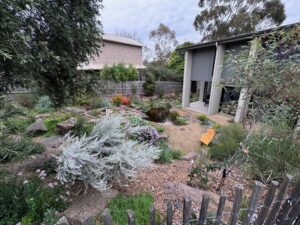
Ngamudji
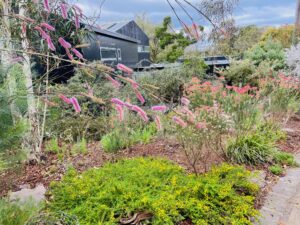
Creekside
Open Gardens Victoria marks the launch of its 2025 Spring Season with a weekend double feature in Surrey Hills, showcasing two exceptional gardens, Ngamudji and Creekside, each brimming with native plantings, sustainability features, and a deep connection to place.
Located just a short walk apart, both gardens will open to the public over the weekend of the 6-7 September offering visitors a unique opportunity to experience how Australian plants and thoughtful landscaping can create vibrant, sustainable spaces for people and wildlife alike.
Gilbert and Sullivan Opera Victoria’s Final Production for 2025: Jubilee
Friday 17 October 2025, 7.30pm. Saturday 18 October 2025, 2pm and 7.30pm. Sunday 19 October 2025, 2pm
Athenaeum Theatre 2. 188 Collins St, Melbourne VIC 3000
This production in the heart of Melbourne’s theatre district celebrates two significant milestones:
- the 90 glorious years of ‘innocent merriment’ from one of Australia’s oldest performing arts groups, Gilbert and Sullivan Opera Victoria (GSOV), and
- the 150 years of Trial by Jury, which began the most successful partnership that the theatre has known.
Trial By Jury is, as Kurt-Friedrich Gänzl said, ‘probably the most successful British one-act operetta of all time’. it starts with a breach of promise of marriage and becomes a frothy courtroom comedy.
Director, Diana Burleigh together with Musical Director, Timothy John Wilson have put together an historical and musical recreation of Gilbert and Sullivan productions in Victoria. The particular emphasis will be the 90 years of GSOV, and will showcase our most brilliant performers old and new, with full chorus and orchestra.
Tickets
Book here: https://www.trybooking.com/CWRSY
Full $66; Concession or Group 10+ $60. Discount ticket offered to holders of these cards: Senior, Health, Pension, Department of Veteran Affairs, Student, Society Member (one for named member). Companion card accepted.
Nettleton Park: Hands-On Learning and Heartfelt Connections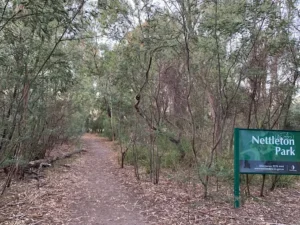
Ruth Scharley
What began as a simple request from the Boroondara Volunteer Resource Centre soon blossomed into a powerful exchange between cultures, generations, and communities.
Earlier this year, a group of 25 to 30 adult students from the Adult Migrant English Service (AMES) at Swinburne University in Hawthorn, visited Nettleton Park in Glen Iris. The students were from across the world including China, Peru, Iran, Greece, India, Afghanistan and Sri Lanka. They came for more than a day in the park; they came for connection, learning, and contribution.
The idea was sparked by AMES teacher Asha Prakash, who wanted her students to experience volunteering in a meaningful, hands-on way. The chosen site, Nettleton Park, is cared for by the Back2Nettleton Friends Group. This local community group has been dedicated to environmental restoration since the end of the COVID-19 pandemic.
‘At first, the idea of welcoming so many students at once seemed overwhelming,’ said a group organiser. ‘But I remembered my mother’s advice: “Don’t look a gift horse in the mouth.” It turned out to be a gift, indeed.’
Students were split into smaller rotating groups and took part in a guided nature walk, weeding, mulching and preparing garden beds for planting. Along the way, they learned new English words like ‘flora’, ‘fauna’, and ‘biodiversity’. They discovered that the park is home to Tawny Frogmouths, an encounter that sparked curiosity and a flurry of smartphone searches.
The day was such a success that AMES later described it as the most highly rated student activity of the year. The partnership has continued to grow. More classes have joined, and the activities expanded to include Clean Up Australia Day, Water Watch testing, bug counts, planting, and even inspecting nesting hollows for yellow-tailed black cockatoos.
When the group marked its fourth birthday in March, the celebration included local councillors, state MP Matt Fregon, council staff, and members of the public. Students mingled, shared ideas, and enjoyed a well-earned birthday cake.
‘The program is a win-win,’ said Antony Braakhuis, a work scheduler with the group. ‘The students practice English, experience Australian culture, and contribute to real environmental work. We benefit from their help and energy, and they become potential volunteers for the future, wherever they may settle.’
For AMES teacher Asha Prakash, the program holds special meaning. A migrant herself, Asha transitioned from a corporate career in Dubai to retraining as a teacher in Australia. Her own story helps her guide others navigating the challenges of migration and settlement.
Student reflections speak volumes. James said, ‘The park is large and beautiful. I saw the results of everyone’s work in its beautiful gardens. I’m grateful to participate.’ Hanieh recalled, ‘We collected rubbish and tested the water quality.’ She and another student Gary were left with a deep impression of the experience. One student described how they spoke with the Deputy Mayor about local safety and housing and how he listened to what they said. The park is a little greener; the students a little more confident; and a local community a little more connected.
To learn more or join the Back2Nettleton Friends Group, go here.
Ruthie Scharley is Back2Nettleton Friends Convenor/Coordinator
Urban Forests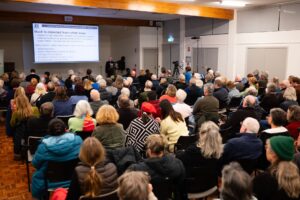
Ray Peck
It was wonderful to see such strong interest in Boroondara’s tree canopy and biodiversity. The Lighter Footprints Urban Forests event held in the refurbished Marwal Centre in North Balwyn on Wed 23 July was booked out.
A highlight of the event was the number of ways residents can help to protect and grow the tree canopy and biodiversity.
Residents can nominate significant trees or request new trees – two very satisfying activities.
The Boroondara Backyard Biodiversity Project 2025 is a gem. It provides workshops on how to turn your garden into a haven for animals. Participants receive landscape gardening advice from a landscape designer and even free native plants. Signing up for Boroondara’s Living for our Future e-news is a good way to stay in touch with biodiversity events.
The Balwyn North Rotary Nature Strip Program helps residents replace the grass with flowering native shrubs, grasses and groundcovers to attract bees, birds and butterflies!
The KooyongKoot Alliance (KKA) is comprised of over twenty Friends Groups working in the Gardiners Creek (KooyongKoot) catchment. There’s nothing better than working with like-minded people in local environmental projects.
Mature trees are being lost all the time, but if we all pitch in and plant new ones, we can ensure that future generations will benefit from the shade and beauty that Boroondara’s trees provide.
A useful summary of the event together with other resources can be found at facebook.com/share/p/19VHDJAc9h/
Climate change targets -a critical decision for our future
John Nihill
Our Federal Government will soon take a critical decision for our future, on an emissions reduction target for 2035 and a plan to achieve this target. The Climate Change Authority is developing independent, expert advice on this target, and industry groups and climate groups will contribute.
We can add our voice, and it is a strong voice if we work together. We have a stake in the future of our country and planet, and we elected this government.
Australia committed in the Paris Agreement to help limit the increase in global average temperatures to well below 2 degrees above pre-industrial levels, and to do all we can to limit this increase to 1.5 degrees.
To reach this goal, both major parties, at present, commit to net zero national fossil fuel emissions by 2050. The Labor Government has legislated a reduction of 43% in national emissions below 2005 levels, and 82% renewable electricity, by 2030.
The government will soon commit to a 2035 target.
This of course is only part of the urgent response needed, it does not include emissions from our export of coal and gas. Even so, this target is a critical response to the climate emergency. The Australian Conservation Foundation (ACF), with many other climate action organisations, is urging the government to reduce emissions by at least 80% by 2035.
Excellent analysis of the need for action is available here: ACF 2025: A National Agenda for Australia’s Nature and Climate and also here: Climate Council 2025: Why Australia’s 2025 Climate Target Matters
The earth is already dangerously close to 1.5% average temperature increase. We are watching the tragic effects all over the world. These include local heat waves; drought and flood that are new weather records; fire and cyclones of a frequency, ferocity and location not seen before; sea temperature rise, ice melt, sea level rise; and species extinction on land and sea. Global heating is already causing hunger, water shortages, disease and displacement.
The nation of Vanuatu has taken legal action for the climate in the International Court of Justice. In July this year, the Court ruled unanimously that ‘a clean, healthy and stable environment’ is a human right, that nations have a legal obligation to tackle climate change, that a failure to do this could lead to reparations to affected nations.
A sustainable climate and a healthy environment is all within reach. It will require urgent action in renewable energy, farming practice, land, forest and water management, transport development, and green industry.
Excitingly, the innovation in science and technology and the investment potential are growing rapidly. Every level of government, every sector of the economy and every person has a part in this, but the Federal Government must lead with strong targets and policy and planning. We need to make full use of the opportunities that are here, and to provide incentives and directly invest in greater opportunities.
We need decisive and urgent action in the 2035 target and its plan. Adopting such a plan will provide sustainable jobs and build the skills we need. This will strengthen the economy
Every emission reduction effort we make now has both an immediate benefit and an ongoing one into the future. Deep emission reductions now make the path to net zero easier and hopefully earlier.
Prime Minister Anthony Albanese has said that he wants his legacy to be action on climate. I believe him. The ACF is asking us to sign an open letter to Mr Albanese to set a strong science-based 2035 emissions reduction target. Please read this letter, sign it and share it as widely as you can. https://www.acf.org.au/our-work/climate/open-letter-2035
John Nihill is a member of ACF Eastern Rosellas Community Group (formerly ACF Chisholm)
26/07/2025
Clean Waterways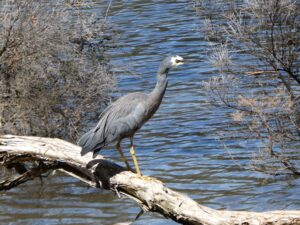
KKA committee and Glenys Grant
The Clean Waterways Expo 2025 was held at Blackburn Lake Sanctuary, the headwaters of the KooyongKoot (Gardiners Creek) on Sunday, 29 June. This was its second year and keenly supported by the KooyongKoot Alliance (KKA).
Around 200 people attended. They explored exhibitions and participated in activities put on by 50 presenters and demonstrators at the Visitors Centre and in surrounding marquees. The BBQ sausage sizzle (free with a pledge to reduce plastic use) run by the 1st/8th Blackburn Scout groups was a popular part of the day.
The Expo aimed to raise awareness and inform the public and industry on how to reduce the use of single-use plastics while preventing pollution and littering in our local waterways by improving work and lifestyle practices. At the end of the day, the public went away with a greater understanding of the issues and more respect for the groups working to meet the pollution challenges.
Melbourne Water showcased their new Litter Toolkit – a suite of practical resources for councils, groups and organisations to implement to encourage anti-littering behaviour locally. The Environment Protection Authority (EPA) demonstrated how they test for pollution, what the tests mean, the fines involved and how to report problems.
The Port Phillip Bay Keeper and the Yarra River Keeper groups spoke about plastics pollution including polystyrene and nurdles. KooyongKoot Alliance and the Gardiners Creek Regional Collaboration also made presentations.
Amongst the stalls was Whitehorse Council’s Waste Education and Environment Education teams explaining about litter damage, correct recycling, waste reduction, and environment-friendly replacement products. They spoke about how to become involved in the free environment school holiday activities and school term excursions.
The RUSTIE team showed that sustainable learning is definitely not boring. Their regenerative upcycling solar-powered trailer transformed plastic waste into new usable products while recycling educators provided information on the RUSTIE school incursion program.
Wildlife educator Roberto the Connie and Xavier from Blackburn Lake WaterWatch team helped children spot and identify real waterbugs from the Lake, while explaining how their health indicates the water quality.
Teams involved in caring for the KooyongKoot were present. They included KKA and its many Friends Groups, Gardiners Creek Regional Collaboration, Port Phillip EcoCenter and Yarra Riverkeeper Association. Each work to improve water quality, habitat, biodiversity of fauna and flora, and aesthetics. This ensures our waterways can become a more enjoyable place to visit, a better habitat with safer food sources for native birds, plants and animals.
The final event of the day was a guided tour of the Blackburn Lake Wetlands, to explain to the community what the Wetland Regeneration Project* is about and how to get involved.
Beating pollution is an uphill battle, and community education like the expo is a key to better outcomes. The Expo was a great success with the team running it going home happily exhausted and agreeing this should become an annual event!
Editor’s note
The Blackburn Lake Sanctuary Wetlands Regeneration Project is an extensive two-year project involving major works and the planting of more than 3500 plants. Whitehorse Council is undertaking the heavy earth work, and the community is needed to assist with weeding and planting. For further information contact BLSAC@bigpond.com

Rayan Raydan’s Rapid Rise
Eli Kelly
While most kids his age are out playing AFL, rising star Rayan Raydan has gone against the grain and embraced the world of Gridiron. At just 16 years old, the Croydon local has achieved rapid success in the sport, earning a place on the Victorian Eagles Under-18 State Team, and the national Australian team after only a year of playing.
Having previously participated in soccer and basketball, it was the discovery of the local team, Croydon Rangers, that sparked his passion for playing Gridiron. Rayan was drawn to the idea that the sport offered something ‘different’, so he decided to take the leap. The Croydon Rangers were formed in 1984 and are one of the two founding teams in Victoria. They have continuously strived to develop the Gridiron scene in Australia; a mission Rayan now shares.
For those unfamiliar with Gridiron, Rayan refers to it as ‘American football’, the name stemming from the grid-like layout of the field. The game consists of two teams of eleven players competing to score points either through touchdowns or by kicking the ball through the goalposts. Unique to the sport is that ‘it caters to all body types and playing styles’, Rayan’s father highlights. Rayan himself plays on the offensive line, a key component requiring a keen sense of strategy and physical strength.
One of the biggest challenges Rayan recalls was being thrown into the unfamiliar role of centre for the state team. Despite having never played the position before, he adapted quickly, a testament to his resilience and skillset.
Much of his success can also be attributed to the strong support network of his family. Despite a demanding schedule of five after-school training sessions a week, 5:30am starts on Saturdays, and regular games, he remains focused and positive. He has recently elevated his training, joining Conquest Athletic Performance in Endeavour Hills, a high-performance strength and conditioning gym led by renowned coach, Dave Tuinauvai.
Rayan has experienced notable success during his brief stint in Gridiron, recently helping his team claim a grand final victory. Now, he sets his sights on representing the national Australian team, an opportunity that means a lot to him, particularly as the youngest starter on the team. This selection involved submitting performance footage to selectors in Australia and entails a great undertaking of 5am wake ups, with up to 4 to 5 hours of training almost every day during the festival.
Looking ahead, Rayan remains open to where the sport may lead him, taking it one step at a time. He is eager to see more young Australians take up Gridiron, calling it an ‘exciting game with a lot of talent’. As he puts it, ‘If you enjoy football, you’d enjoy this’. With his drive and talent, Rayan Raydan has a bright future, whether in Gridiron or elsewhere.
21 July 2025
Persistence Pays Off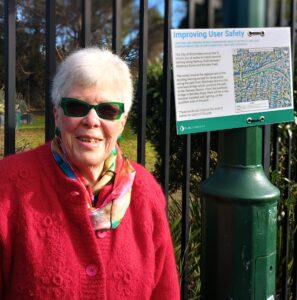
Julie Mulhauser
Camberwell resident Elizabeth has had a win for community safety and encouraging public transport use. Elizabeth was the driving force behind a decade long local resident campaign to have lighting installed on the pedestrian access to the south of East Camberwell Station.
What appeared to be a simple request faced multiple challenges. Railway station precincts have multiple stakeholders and specific technical challenges due to topography and infrastructure.
Elizabeth’s persistence has resulted in Boroondara Council installing handrail lighting along the pedestrian access pathway between Stanhope Grove and Brinsley Road Camberwell. In the section where a communication channel and steep embankment prevent the installation of a new fence, Boroondara Council is installing an illuminated handrail on the opposite side of the path.
Improving safe pedestrian access to East Camberwell Station will hopefully contribute to encouraging the use of public transport.
Public transport use in Victoria has declined 24% from October 2019 to October 2023. Metro Trains has experienced the greatest decrease at 32%. This is due to an increase in working from home and an increase in car travel. At the same time, commuting demand for personal, social, and recreational travel has increased. This has led to an in increase in travel to destinations close to where people live and an increase in weekend travel.
Greenhouse gas emissions from road transport account for 22% of Victoria’s total emissions. Road transport is also the fastest growing source of Victoria’s emissions. Urgently encouraging mode shifting away from high emissions road transport to public and active transport should be a high priority.
Mode shifting to public and active transport will also improve safety, public health, and air quality.
Elizabeth’s story of persistence reminds us that we should not underestimate the power of community pressure to persuade our governments to act.
Wasted?: a novel based on environmental and sociological solutions
Glenys Grant OAM
Hazel Edwards OAM is an award-winning Australian author of over 200 books, known for blending social themes with engaging storytelling. She is perhaps best known for the picture book classic There’s a Hippopotamus on Our Roof Eating Cake series, but has also written several young adult fiction novels.
Her latest, Wasted? continues her legacy of crafting stories that matter. Aimed at young adults, Hazel’s hope is to promote innovative thinking and get them talking about new possible solutions to both environmental and sociological issues.
Wasted? covers a range of real issues, based around social and economic themes, set in a real location, with real environmental challenges. Although there appears to be not one real solution, there is the possibility of a better future.
The novel has a political and unique storyline: refugees, runaways, and rebels forming a chosen family and setting up a new home and scientific labs on satellite shanty-boats next to the unlikeliest of places, the Pacific Ocean’s Great Garbage Patch.
Mid-ocean, the giant Great Garbage Patch is an eco- embarrassment and no-one wants to own it despite UN recognition. Fed by tidal waves of murky waste, circling currents collect marine debris of ropes, fishing nets and plastic discards into an unstable, fluid place. An environmentally horrifying massive rubbish dump in the ocean, at about three times the size of France, and growing.
The asylum seekers, hoping desperately for visas and their own homeland, prove to be creators and developers. Drawing on their vision, resources and scientific knowledge, they repurpose and create bio-fuel salvaged from the ocean’s waste plastics. They plan to trade their fuel for visas, make enough money to survive and grow their new and legal Utopian state.
So, what could possibly go wrong? Key themes include who decides what (or who) is disposable and whether short term survival is enough without long-term vision. Issues include licensing, international lawyers and politics, then success and immense wealth which undermines the collaborative culture that brought them together. And are they creating more environment and health problems?
The diverse, authentic characters and quirky ground breaking Climate Repair problem-solvers are led by 16-year-old Kit, a practical but idealistic teen caught between worlds, who illustrates how to be part of a new future.
Hazel says ‘In Wasted? I was interested in portraying asylum seekers as innovative problem solvers, not victims. Prior to writing Wasted, I’d checked with my team of experts (all friends) the science that would form part of the plot twists and the unique Garbage Patch setting.
‘Was my idea possible, about having innovative asylum Seekers setting up a self-sufficient new state which could issue visas? Was it scientifically viable to create a stable base mid ocean on which people could live, have fresh water and nourishing food, and work? Was it feasible to create bio-fuel from garbage, then trade the patents? Yes, yes and yes.’
And so Wasted? was born.
Wasted? Is a Young Adult/adult cross over #CliFic. Published by Bookpod, it was launched at Write Around the Murray Literary Festival on September 14 2024. For more information, go here
20 July 2025
Concerns over the Blackburn Activity Centre planning changes
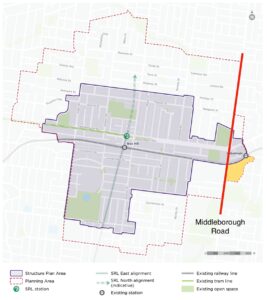
Figure 3: Box Hill Structure Plan Area and Planning Area. Page 12 SRL East Draft Structure Plan – Box Hill; annotations added
Kieran Simpson
The State Government planned Blackburn Activity Centre sits in the Cootamundra Ward of Whitehorse Council. Since being elected in October 2024 as the Ward Councillor, I have met with residents and community groups to discuss their views on the upcoming changes. Residents, Whitehorse Council and myself are all concerned about the impact to tree canopy from planning changes.
Blackburn is special in that it has the Bellbird Area which was classified by the National Trust in the 1970s and retains a rural ambience in which the streetscape is dominated by vegetation, particularly trees. The area has a significant landscape overlay in the SLO-1 which has strict development limits and vegetation protection.
In my discussions with the government, including the local state member, I have personally advocated for the government to retain overlays such as the SLO-1 and SLO-2. This is to preserve the uniqueness of Blackburn and our local environment. With the government renewing the SLO-9 I am hopeful that we might see other overlays preserved.
When the draft plans for the Activity Centre are released, myself and Whitehorse Council will form a response, and I encourage all residents to participate in the consultation phases.
Residents are also welcome to contact me directly if they want. Until the draft plans are released, any claims about what are in the plans is speculation – even by me. I am disappointed that some residents have been given false information and contact me scared that they are going to lose their homes.
When I door-knocked residents living near Laburnum Village, many people shared with me their concerns about being in the SRL Box Hill Planning Area (the orange shared area on the diagram). Given the terrain in that area, I can understand frustration from residents that increasing housing density south of the train line, and east of Middleborough Road within the SRL Box Hill planning area doesn’t make a lot of sense and would have negative impacts on the local area and the village feel. It’s quite hilly so there would have to be significant earthworks to build higher density dwellings.
Earlier this year, I personally made a submission to the SRL Draft Structure Plans consultation process. In it, I outlined the reasons why I believe that area should be removed from the SRL Planning Area. I have received an invitation to register to speak to the Planning Panel later this year. I hope that it will result in an opportunity to represent the local residents’ views in person.
I attend the Blackburn Station Craft Market every month. Residents are welcome to come speak to me (and buy a couple of sausages). For regular updates my community newsletter will be going into letterboxes and residents can also follow me on Facebook via @crkieransimpson
Kieran Simpson is the Councillor for Cootamundra Ward, City of Whitehorse
20 July 2025
Come dance with Marie. Join a line dance class near you
Marie Pietersz
Marie invites you to join her classes to try out line dancing and have more fun than you could ever imagine moving and exercising. Easy to learn and enjoyable, line dancing is perfect for all levels of experience and ability.
Classes are held at Forest Hill, Ashburton, Rowville, Camberwell and Vermont South on Monday, Tuesday, Wednesday, and Thursday, in both the day and evening. The classes range from Introduction, Beginners, Improvers, Easy to Intermediates and are conducted by a thorough and patient instructor. All ages welcome.
Contact Marie about specific class times and locations, how to register and any other questions by email at mariepietersz@hotmail.com. If you pre-register, please pay online. Casual attendance available. If paying cash at the door, please arrive a few minutes early so as not to disrupt the class.
Line Dancing is a great way to stay active and meet new friends. Come and give it a try and workout for your whole body.
20 July 2025
Busy Bees 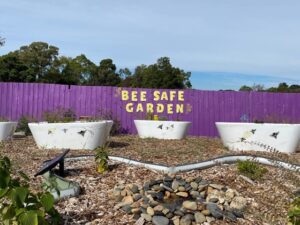
Trish Carr, Rotary Club Box Hill Burwood and Glenys Grant
The Bee Education and Protection Project (BEAP) at Parkmore Primary School aims to support the survival of native bees.
Parkmore’s Team BEAP have found concerning information that indicates native bees are endangered. If the bee population continues to decline, this could have a dramatic impact on human food production, as well as the global environment.
Team BEAP’s endeavours have included running a Native Bee Hotel competition with the finished product on display in the garden; producing a native bee memory card game and publishing a picture story book on how to protect the native bee in the garden at home. The students have also researched and published brochures on how to protect the native bee, including the use of chemical-free pesticides and weedkillers.
Partnerships and community support
To date, BEAP have successfully implemented partnerships as part of the project. These include with Beechworth Honey, who have put QR codes on their honey jars taking people to the education centre and Monash University, who is gathering data in the Native Bee-Safe Garden designed and built at the school. The garden has seen the introduction of the Blue Banded bee, Native honey bee, Reed bee and red Legged Cuckoo Bee to its precinct on a daily basis.
Gaining community support from Bunnings, Nunawading Community gardens, Richard Welsh, Whitehorse Council, students, staff, parents and friends of Parkmore primary, the details of the student’s project were also presented to the State Environmental Minister and local MP John Mullahy, who is supporting their work.
Rotary Community Grants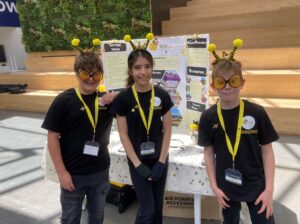
The BEAP project is one of the worthy recipients of Rotary Box Hill Burwood’s 2025 Annual Grants. The students and principal shared information about their exciting environmental project at the recent Rotary Community Grants Presentation Night.
This dedicated team of youngsters travelled to the international 2025 Future Problem Solving Conference Championships at Indiana University, Bloomington to present a video on their excellent environmental work. Here they competed against teams from 14 countries who presented projects and shared how they have solved problems in their community.
Box Hill Burwood Rotary received over 20 applications from local Whitehorse organisations for their 2025 Community Grants. Many worthy applicants made it very difficult for the committee to select recipients. Parkmore Primary School’s Bee Education and Protection Project (BEAP), along with the others chosen, received grants of up to $3,000 for their projects.
These yearly community grants celebrate the meaningful partnerships between Rotary and the wider community in driving positive change and supporting those in need.
19 July 2025
Vasey RSL Care Launches Food Drive to Support Vulnerable Australians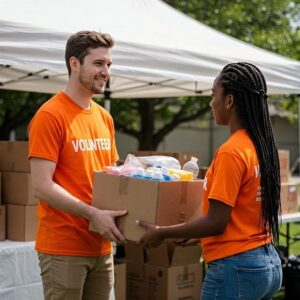
Vasey RSL Care
Vasey RSL Care is taking action for Homelessness Week (4–10 August) by launching a food drive to support individuals experiencing financial hardship, including vulnerable veterans and older Australians.
With the rising cost of living pushing more people to the brink, the initiative will collect non-perishable items from the public to be packed into hampers and distributed across Vasey RSL Care communities and local homelessness services.
Vasey RSL Care CEO Janna Voloshin said ‘We know people are doing it tough at the moment and that veterans are disproportionately impacted by homelessness. Through this initiative, we hope to bring practical support and a message of care to those who need it most.’
From 21 July, items that can be donated include canned goods, breakfast cereals, pasta, noodles, rice, long life milk, tea, coffee, spreads, muesli bars, biscuits, shampoo, soap, deodorant, toothbrushes and toothpaste.
The food drive will run from 21 July to 8 August, with drop-off points at five Vasey RSL Care locations, see below.
Vasey RSL Care drop-off points:
- Central Office – 172 Burwood Road, Hawthorn, VIC, 3122
- Brighton Residential Aged Care – 21 Downes Ave, Brighton, VIC, 3186
- Brighton East Residential Aged Care – 709-723 Hawthorn Road, VIC, 3187
- Bundoora Residential Aged Care – 5-7 Tower Ave, Bundoora, VIC, 3083
- Frankston South Residential Aged Care – 85 Overport Road, Frankston South, VIC, 3199
Together, we can provide hope and support for those who need a hand.
Balwyn Evergreen Centre’s latest initiatives
Diane Falzon
Balwyn Evergreen Centre is a community centre dedicated to ensuring that older individuals stay active, healthy and socially connected. Recent initiatives by the Centre include
- its Evergreen Connections Café and Information Hub, to be celebrated at its Grand Opening on 7 August 2025.
- a new class to its exercise program – Pilates!
The Evergreen Connection Cafe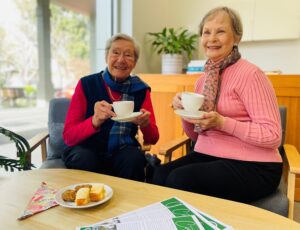
The Evergreen Connections Café is a welcoming space designed to bring people together. Whether it is for a friendly chat over coffee, an impromptu catch-up or accessing useful information, the Evergreen Connections Café will be the new go-to hub for older residents and the wider community.
The launch event on 7 August will feature live music, line dancing and exercise demonstrations, afternoon tea by The Boulevard Food Store in Mont Albert and freshly brewed coffee from the centre’s new espresso machine, supplied by Espresso Fix.
The Evergreen Connections Café & Information Hub has been made possible thanks to the generous support of the Community Bank Inner East Community Investment Program and the City of Boroondara Annual Community Strengthening Grants.
Everyone is welcome to come along, celebrate and explore this vibrant new addition to Balwyn Evergreen Centre’s community offerings
A core-strengthening new class – Pilates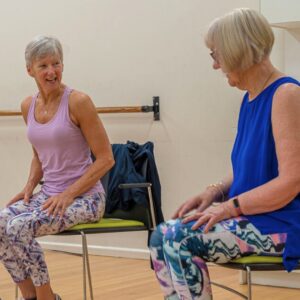
The Centre, has added a new class to its exercise program – Pilates! The class is led by experienced instructor Joanne Morris and caters to all fitness levels, offering modifications for standing, chair and mat-based exercises.
Pilates is well known for its benefits in improving balance, flexibility and strength, making it an ideal addition to the Balwyn Evergreen exercise schedule.
Instructor Joanne Morris is excited about delivering Pilates at Balwyn Evergreen, highlighting its suitability for older adults. “Staff at Evergreen are always looking for new ways to support older adults and we thought, why not Pilates? It’s a safe and effective way to help with strength, balance, flexibility and posture, while also reducing the risk of falls,” Joanne said.
Pilates classes is on Fridays from 11am to 12pm at Balwyn Evergreen Centre. For more information on Evergreen’s exercise programs, visit here.
To find out more about Balwyn Evergreen Centre, you can go to the Eastsider News webpage here: https://www.eastsidernews.org.au/community-mastters/support-groups/balwyn-evergreen-centre/ or the Centre’s website here: www.balwynevergreen.org.au
Lifeblood Champion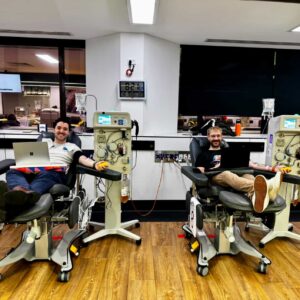
Yvonne Bowyer
My voluntary role as a Lifeblood Champion is to fly the flag for blood donation. Did you know that one in three Australians will need blood or blood products during their lifetime (33%), yet only 3% of Australians donate? New donors are always needed so please consider donating.
There have been recent changes to eligibility. From 14 July 2025, gay and bisexual men and anyone taking PrEP is now eligible to donate plasma. People who lived in the United Kingdom during the mad cow disease outbreak became eligible to donate blood from July 2022.
As a Lifeblood Champion I lead a small team, the Surrey Hills and Mont Albert Blood Donors. We are unique in that we have never met in person as I promote the team solely through a local Facebook group. At the end of the year, I provide data about how many lives we have saved, and in 2024 that was an impressive 126 lives saved. Not bad for 9 people. The group has now increased to 18 members but more are most welcome to join; just mention the team at your next donation.
Where to go to donate your blood
On 19 November 2024, a new permanent purpose-built facility became operational at 293 Camberwell Road, Camberwell (near Petbarn and the Camberwell Police Station). There are other such facilities at Ringwood and Mt Waverley.
If you wish to donate but are uncertain if you are eligible, please call Lifeblood on 13 14 95. If you are unable to donate, why not become an ally and spread the message to your family and friends.
For more information on Australian Red Cross Lifeblood, formerly known as Australian Red Cross Blood Service, go to their website here.
Mahoney’s Reserve Master Plan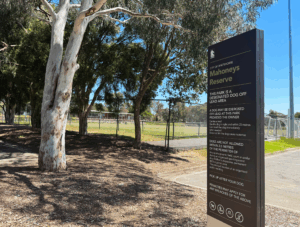
The City of Whitehorse is currently undertaking the development of a Master Plan for Mahoney’s Reserve in Forest Hill. The reserve is 9.8 hectares of open space that caters for a range of sporting and recreational activities such as soccer, cricket, badminton, table tennis, walking, dog off-lead area and play.
In January 2024, the Council completed the first round of community consultation on its proposed Master Plan for Mahoney’s Reserve. A major focus of these consultations was an option to build one combined pavilion on the reserve to meet the needs of sporting groups and scouts. Based on the feedback received about the pavilion redevelopment, this project was put on hold while Council develops a Master Plan for the entire reserve.
Council has foreshadowed proposed consultations for the Master Plan for Mahoney’s Reserve. The time and details are yet to be confirmed.
Council has said these consultations will consider all facilities within the park including the three buildings, play space, sports fields, path network, carpark and landscape and all other facilities in a holistic manner. Local sports clubs (including table tennis and badminton clubs) will remain using the northern pavilion until a decision is made on the pavilion design, which will occur once the Master Plan is completed.
There is deep concern amongst table tennis players that their venue, Mahoney’s Hall, is under threat of demolition. Whitehorse Council has encouraged the group to look elsewhere for a new playing venue. This concern is expressed in the article by Bruce Haines, Leader, WAC Afternoon Table Tennis Activity. Go here to read this article.
Nurturing Australia’s next generation of energy-savvy students – Mount Lilydale Mercy College project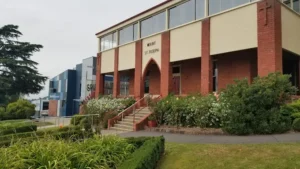
How embracing solar technology is helping a Victorian college save 77 tonnes of CO2 and the planet.
Solahart
Located in Melbourne’s outer east, Mount Lilydale Mercy College is a leading Catholic co-educational secondary school. Founded in 1896 and serving the needs of more than 1500 students, the College recognises the importance of sustainable practices, not only for its future but for the environment.
As part of Mount Lilydale Mercy College’s commitment to sustainability in the learning environment, the school has installed water tanks for recycled water use, rolled out waste recycling upgrades, and expanded green spaces.
In recognition of these recent efforts, the College has achieved a 5-star rating from the ResourceSmart Schools Awards by Sustainability Victoria and was awarded the title of 2024 Secondary School Winner in the Community Leadership School 2024 – Fostering Responsible, Community-Oriented Citizens category.
Sustainable pathways for future-focused college
With a primary goal to reduce daytime power consumption and offset carbon emissions, Mount Lilydale Mercy College partnered with Solahart Eastern Ranges to upgrade its existing solar infrastructure. Being a family-owned and operated business, the team at Solahart Eastern Ranges are passionate about supporting the local community and were delighted to help Mount Lilydale Mercy College on its journey to a more sustainable future.
As part of its pledge to green solutions and building an energy-conscious cohort, the College enlisted Solahart Eastern Ranges’ expertise to explore efficient ways to monitor the school’s energy usage and report to the Sustainability Victoria ResourceSmart Schools Program.
Mount Lilydale Mercy College’s Assistant Business Manager, Cathy Pote, states, ‘Our College has been working towards becoming more sustainable with initiatives such as building outdoor learning spaces, reducing waste and water usage, and creating more green spaces with our annual tree-planting day. In partnership with Yarra Valley Water and Yarra Ranges Council, the students have been actively involved in a regeneration program to revive the natural ecosystem on the College’s leased sports ground, including indigenous vegetation, to increase native wildlife.
Ms Pote explained why they had decided to partner with Solahart. ‘Given our energy consumption as a large College, we knew monitoring our usage and creating better energy efficiency was important. As well as upgrading to solar power, the school also consulted with Solahart Eastern Ranges on how we could monitor the patterns and peaks in our usage to conserve energy and identify waste.’
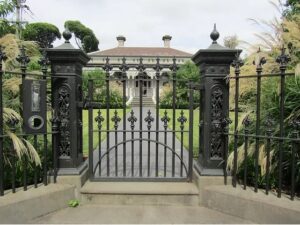 Boroondara’s draft Heritage Strategy
Boroondara’s draft Heritage Strategy
Boroondara Council has now drafted a new 10 year plus Heritage strategy and an Action Plan to go with it. For more detail on the Strategy including the related study into the heritage aspects of bluestone road materials, go here
The Boroondara Heritage Group and the Save Boroondara’s Bluestone heritage Group encourage as many people as possible to participate in the survey the Council has set up as part of their community consultation on the draft Strategy and Action Plan. Follow this link for suggestions on the points you can make in your survey response and how you can support this important new initiative.
Points discussed in more detail in the linked post include the benefits of having a Heritage Strategy, the essential components of a strategy and points that you can make in your response to the survey especially with respect to protecting the bluestone heritage of our City.
Here is the link to the survey and more information about the strategy and related documents if you wish to take a look.
https://yoursay.boroondara.vic.gov.au/heritage-strategy
Please participate by 5pm Tuesday 22 July.
As ever, the more people who participate and show support for the strategy, the more likely the strategy is to be adopted and implemented at a vote at council later this year.
Robert Burns’ Statue and the Celtic Festival, Camperdown.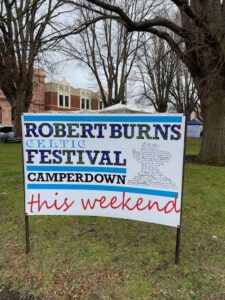
Corinne Fenton
On the last weekend in June, we travelled to the Western District country town of Camperdown. My husband is a member of the Melbourne Male Welsh Choir who were taking part in the annual Robert Burns Celtic Festival.
I took with me a little tartan book of the poetry and songs of Robert Burns which I’d bought in Pitlochry in Scotland when I was living there way back in 1974.
On arriving in Camperdown, the town was alive with performers of dance, poetry and music – choirs, Scottish bands, Celtic dance groups and an outdoor market on the green in the middle of town.
In the foyer of the Corangamite Shire Civic Centre, I came upon the statue of Robert Burns and the statue’s story. For 125 Years, this statue of Robert Burns and his faithful dog Luath sat on a plinth in the Camperdown Botanic Gardens looking over the hills and plains.
In 2009 vandals attacked the precious statue which was immediately moved to a safe position in town. I quote below, in part, from a brochure entitled The Remarkable Story of Camperdown’s Robert Burns Statue, used with kind permission from Camperdown & District Historical Society.
‘In the ensuing months, Corangamite Shire Council worked closely with the National Trust of Australia to determine how best to restore the statue, and to raise the necessary funds. In the meantime, publicity about the significance of the statue and its plight attracted national and international attention. It was suggested by one commentator, that the statue should be returned to Scotland. This idea was swiftly rejected by the Council.
After extensive research, stone that closely matched the original was sourced from the Drumhead Quarry nearby Denny, Scotland. The owners of the Drumhead Quarry were so enthusiastic about the restoration that they generously donated the stone. The large block stone arrived on the docks at Port Melbourne with a tartan ribbon tied around it in honour of its intended use.
Local businessman, Trevor Lee, made space available at his Manifold Street premises for restoration work on the statue. Through the shop front window, passers-by were able to watch the work slowly progress. Sculptor, Smiley Williams, and skilled stonemasons from Cathedral Stone in Melbourne, worked throughout 2011 to meticulously restore the statue to its original appearance.
Local residents and Burns lovers the world over, urged Corangamite Shire Council to display the statue at a safe, indoor location. On the 27th January 2012, the restored statue of Robert Burns was unveiled at its new home in the foyer of the Corangamite Shire Civic Centre, Camperdown, by the Premier of Victoria, the Hon. Ted Baillieu MP.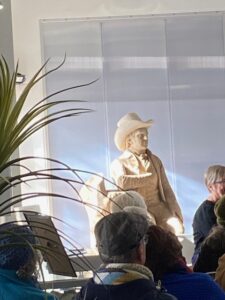
The ceremony was attended by Burns admirers from all over Australia as well as from overseas.’
This statue is believed to be the oldest surviving statue of Burns in the world. In 2012, possibly because of the global attention restoration of the statue had received, the Robert Burns Celtic Festival was born.
To find out more about the recent festival in 2025, go here. And, if you are looking for a wonderful weekend of music, dance and history, next year the festival will be held on September 4 and 5, 2026.
Local youth act to improve period product accessibility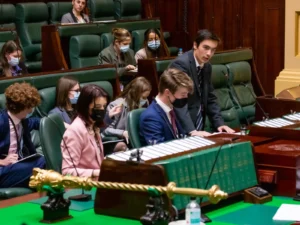
Ciele Towb
Youth Parliament is a program run by YMCA Youth Services that gives young people a chance to be heard in our state’s houses of parliament. Through this program, young people between the ages of 16 and 25 can share their views on a wide range of issues relevant to their lives.
Working in teams of six, Youth Parliamentarians are supported through the process of drafting a Bill, which addresses a state-based issue that they would like to see changed or added into Victorian legislation. As the future generation, young people are some of the strongest voices speaking up against the issues that matter. It’s important that these voices are heard and action is taken.
The Boroondara City Council team
The Boroondara City Council team comprised Ella Zhang, Rohan Hobbs, Ishan Venkat and Mikael Bonne. The program allowed the team to not only express their views but to work for change. They did this by writing and sponsoring The Increased Accessibility to Period Products Bill 2025 through Parliament. The bill was submitted to the Minister for Youth for review.
The Increased Accessibility to Period Products Bill 2025
On 8 July, the Y Victorian Youth Parliament voted to pass the Boroondara Bill. Debate noted that period products can be at best an inconvenience and at worst unattainable. This is an issue faced by 51% of Victorians.
In speaking to the bill, Ella Zhang spoke with passion about how this reflects gender inequality in society. ‘We live in a world where women’s welfare is systematically dismissed, disadvantaged and disregarded. And this has to be changed.’
This bill includes the establishment of the Period Product Accessibility Driver Board, made up of experts to oversee implementation of period product dispensaries in public places, a sign on initiative for private schools and the Period Product Discount Scheme, this involves discount cards that could be used at stores when purchasing period products.
‘It is a crucial step forward that enshrines the ease of period product accessibility into law. It delivers a certainty and accountability that previous programs simply could not,’ Rohan Hobbs stated.
This Bill’s impact could help alleviate the pressure from the cost of living crisis, promote women’s health, too often underrepresented, and reduce period stigma.
‘The presence of [this Bill] will provide us a sense of security and a sense of being acknowledged, to let us know that people understand and people care. It is time to [foster] a world where women are comfortable with their own biology,’ Zhang expressed when speaking to this issue.
Dr Julie Hennegan, Principal Research Fellow at the Burnet Institute and at the University of Queensland leads research around menstrual health in Australia and around the world. She was supportive of this Bill and admired the young people on the Boroondara team for advocating on this issue. She commented on how valuable its implementation would be, pointing to the need for the Bill and how it would provide education, normalisation, and support.
‘Our current system, where essential period products are often inaccessible and unaffordable, creates an immense strain for countless individuals,’ Venkat said.
The passing of this Bill and the strong voices of passionate young people reflect the need for change, and improve the experience and attitude towards periods for many. Mikael Bonne’s opening words in his debate referred to ‘a future in which we, as a community, as a people, as a nation, know that this Bill made a true impact.’
Ciele Towb is a 2025 Youth Press Gallery Journalist
Welcome to East Burwood Care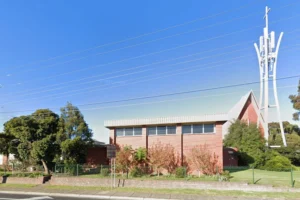
East Burwood Care
The Burwood Heights Congregation, with the support of the Anglican Church of The Ascension in Burwood East, has responded to recent changes within the management of the Uniting Care Network in Victoria to initiate a new model of local outreach.
This will be known as East Burwood Care and will be resourced from within the local community. It will continue to operate from the East Burwood Centre, at 220 Burwood Highway, Burwood East.
Over time, East Burwood Care will build up a range of outreach services. Our initial focus will be on a continuation of the Emergency Food Relief service which has been operated from this site for many years.
Emergency Food Relief
Details of the current Emergency Food Relief service can be found here. https://ebcare.org.au/emergency-relief. Our pantry is kept stocked by donations from congregation members and other supporters, as well as from other sources.
We are planning that the East Burwood Centre will be open for Emergency Food Relief on two days each week, commencing on 8th July. Opening times will initially be Tuesday, 10 am to 2 pm and Thursday, 10 am to 2 pm. Anyone visiting is assured of a warm welcome and the offer of a listening ear.
Ways you can help East Burwood Care.
When the Centre is fully established, there will be many volunteer positions to be filled. These include community workers, welcoming visitors and answering phones, office work and general organisational assistance. You can also donate basic food items, blankets, doonas, and clothing make a financial donation or $20 Coles food voichers. Please make contact by email at info@ebcare.org.au.
East Burwood Care is a community outreach service of the Burwood Heights Congregation of the Uniting Church in association with the Anglican Church of the Ascension, Burwood East. To find out more, go the East Burwood Care website at www.ebcare.org.au or visit us at 220 Burwood Highway, Burwood East 3151 (enter from Blackburn Road). Our opening hours: Tuesday and Tuesday, 10am to 2pm.
National Science Week, 9 to 17 August 2025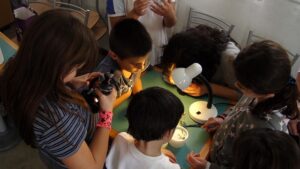
The national science festival that reaches more than 3 million people through over 2,000 events is back. Over a thousand events have registered at ScienceWeek.net.au/events.
University of Melbourne’s Science Gallery explores how we can ‘harness the cacophony of digital content and find meaning within it’ through interactive games, play and technology in its free DISTRACTION exhibition.
Highlights include:
- Deviation Game, by UK-based Studio Playfool, invites you to draw things that humans can understand but an image-recognition AI can’t.
- Cat Island, by Jen Valender, merges animal colour perception research from University of Melbourne’s Stuart-Fox Lab with technology that explores how cats on Japan’s Ainoshima Island (aka ‘Cat Heaven Island’) respond to digital stimuli, such as screen videos of their own image.
- Melbourne artist Xanthe Dobbie’s Unoriginal Sin focuses on the concept of ‘mean images’ (coined by artist Hito Steyerl) in an immersive video installation.
- US artist and Institute for Comedic Inquiry founder Laura Allcorn’s Pledge Drive for Attention opens the door to a comedic set based on a televised pledge drive, exploring how our attention spans are zapped by digital distractions.
For details on the Distraction Exhibition, go here
Roadblocks still abound en route to decarbonisation of Australia’s freight industry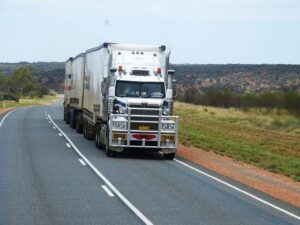
University of New South Wales
Freight is critical to Australia’s economy but a UNSW expert is warning the industry is falling behind on the road to net zero.
Freight supply chains underpin nearly every sector of the economy, delivering petrol to service stations, food to supermarket shelves and goods to retail centres across the country. But the freight industry is under growing pressure as it struggles to align with Australia’s sustainability targets – with the sector still heavily reliant on diesel-powered transport.
Transport engineering expert, Dr Elnaz Irannezhad from UNSW’s School of Civil and Environmental Engineering, warns that without urgent innovation and coordinated policy action, the industry risks becoming a roadblock to Australia’s path to net zero.
“From our ports and rails to our intermodal terminals, where containers are moved between different modes of transport, almost all our freight fleet currently runs on diesel fuel,” she says.
“There is a huge opportunity to decarbonise the freight and logistics sector – and it starts with collaboration between industry, researchers and government.”
Are we headed in the right direction?
Transport accounts for approximately 21% of Australia’s total greenhouse gas emissions. Heavy freight makes up about 40% of transport emissions and represents approximately 7% of Australia’s total emissions. According to the Federal Government’s Emissions Projections 2024 report, freight emissions are expected to increase by 16% by 2040, due in part to the slow uptake of electric heavy vehicles.
Regulatory inconsistencies between states
Bigger distances require bigger batteries for electric freight vehicles. Over the years, most state transport authorities have increased the axle mass limits for the next generation of zero emission heavy vehicles to accommodate for the heavier battery load.
While this was a welcomed move from the industry, there are still inconsistencies in limits between states and territories. In Victorian heavy-duty electric trucks can only operate with a 7.5 tonne weight on the steer axle – half a tonne less than NSW.
E-commerce growth puts pressure on supply chains
In 2024, nearly 10 million households made a purchase online, contributing to a record $A56 billion in domestic e-commerce spending. Globally, the market was worth over $US6.3 trillion. With many retailers now offering same or next day delivery, there is further pressure on the freight and logistics supply chain to move goods to consumers even faster.
What needs to happen next?
Without widespread charging infrastructure, freight companies are hesitant to adopt electric trucks. But until more low-emission vehicles are on the road, there’s little demand to build the infrastructure.
The same can be said about importing low emission trucks to Australia. Since we’re a smaller market, the technologies available to us are seven years behind the United States and countries in the European Union.
Dr Irannezhad says we also need a fuel-efficiency standard for heavy vehicles. ‘Currently, heavy vehicles in Australia must comply with Euro V emissions standards under the Australian Design Rules. While these standards regulate criteria pollutants such as CO, HC, NOx, they fail to address CO2 emissions which is directly linked to fuel efficiency.
‘If Australia is serious about meeting our emission targets, we need to raise the bar. More incentives and subsidies and clear fuel-efficiency standard for heavy vehicles are just some of the ways we can help lower our emissions.’
Winter’s chill brings fire risk – homeowners warned of house fire dangers
AAMI
As the cooler weather arrives across the nation, the comforting hum of electric blankets and heaters return. While these electrical items are necessary to stave off the cold, especially with the kids more likely to be playing inside, insurer AAMI is urging homeowners to be vigilant, warning of the hidden dangers for house fires this winter.
So far in 2025, the insurer AAMI has received more than 750 fire-related claims across the country. The leading cause of house fires for the insurer includes lithium-ion batteries in e-scooters and e-bikes, heating appliances, and faulty power outlets.
AAMI recommends a range of ways people can protect their home from fires:
- Inspect heating appliances for damaged plugs, frayed cords, or signs of overheating. It is recommended to have appliances tested and tagged by a qualified electrician to ensure they are in working order.
- Keep appliances one metre away from anything flammable, such as curtains, furniture, bedding, or drying laundry.
- Avoid overloading power outlets by only plugging one heat-producing appliance into a single power outlet at a time. Overloading can cause circuits to overheat and spark fires.
- Test smoke alarms monthly to ensure they are working correctly, have fresh batteries, and are located on every level of your home, including bedrooms and hallways.
- Check electric blankets for scorch marks, frayed cords, or damaged elements before use.
- Only use manufacturer or recommended charging cables for all electrical appliances including phones, especially e-scooters and e-bikes.
Claims data was collected from AAI Limited trading as AAMI. Data sourced from home insurance claims from AAI Limited’s portfolio of brands from 1 January 2025 to 30 May 2025
Victoria’s energy future is electrifying
No More Gas campaign, Friends of the Earth Melbourne
The Victorian Government has announced a suite of regulations which will continue the work of significantly reducing the use of fossil gas statewide for rentals, newly built privately owned homes and newly built commercial buildings including schools and hospitals.
At a time of rising energy bills and an intensifying cost of living crisis, these reforms will directly improve financial circumstances for many residential and commercial bill payers statewide. Victoria is far and beyond the heaviest domestic gas using state or territory per capita in Australia.
Top line Victorian Government announceables in a nutshell:
- All new residential and commercial buildings (except agricultural and manufacturing buildings) to require all electric heating and hot water from 1 January 2027
- All rentals including public housing to shift to electric hot water and heating upon replacement – alongside a suite of other energy efficiency upgrades – after 1 March 2027
- From 1 March 2027 all existing privately owned homes can only replace gas hot water with electric appliances. The largest gas guzzling appliances of space heating, and the greatest indoor air pollutant, gas cooking are not included.
In many ways these are ground-breaking reforms for the climate and selected household budgets. ‘The nearly one third of homes occupied by renters are prioritised, meaning that some of the most vulnerable households will see an early benefit in shifting away from expensive gas to more efficient hot water, heating and cooling options’, said Friends of the Earth No More Gas campaigner Freja Leonard.
Friends of the Earth Melbourne expressed concern that while these new regulations benefit new home owners and existing renters, many Victorian residents will be left tied to a climate polluting energy source which is rising in price, both for usage and daily access charges.
‘We urge the government to shift daily access charges for gas from renters to rental providers as currently happens for water bills’ said Leonard. ‘This will finally incentivise landlords to remove gas entirely from their rental properties. Phasing out gas appliances for rentals and new homes is a triumph for energy justice, economic commonsense and climate which will benefit Victorians for decades to come.’
La Trobe joins national agricultural innovation network
La Trobe University
La Trobe University is one of four research facilities chosen to join Plant SynBio Australia, a $20 million Federal Government initiative to innovate in agriculture.
Plant SynBio Australia (PSBA) was launched in Canberra on Wednesday, 18 June, harnessing a national network of infrastructure and expertise to accelerate gains in agri-food productivity. PSBA will focus on synthetic biology, which uses engineering principles to redesign biological organisms for a desired outcome including vaccines, novel crops, and foods and pharmaceuticals.
La Trobe’s Institute of Sustainable Agriculture and Food (LISAF) is already working to enhance plant functionality, enabling food and medicinal crops to be grown with new properties to combat problems including nutritional and medicinal qualities, and climate resilience.
La Trobe Vice-Chancellor Professor Theo Farrell said the University was proud to be part of a national program driving agri-food advances. ‘La Trobe University is a leader in world-class research across biotech, agtech and biomedical sciences. Our research institutes are at the forefront of discovery, translating pioneering science into commercial success.’
The PSBA network will provide plant synthetic biology services in agricultural, horticultural and medicinal species, including cereal, legumes and oilseed crops, as well as other species to bio-manufacture materials, medicines and other high-value products.
Other research nodes will be located at Adelaide University, Australian National University and University of Western Australia. The nodes will supply infrastructure and expertise to researchers, government and industry, as well as providing incubation space for the start-up community and opportunities to collaborate.
The PSBA investment was provided by the Commonwealth Government via the National Collaborative Research Infrastructure Strategy (NCRIS) as part of a larger, $55 million ‘Step Change’ investment to enable synthetic biology across industrial fermentation, plant agriculture and food, medical research and biosecurity domains.
The investment is managed by Bioplatforms Australia, a non-profit organisation that supports Australian life science research by investing in state-of-the-art infrastructure and expertise in genomics, proteomics, metabolomics, synthetic biology and bioinformatics.
Andrew Gilbert, CEO of Bioplatforms Australia, said PSBA enabled a full synthetic biology approach to tackling agricultural and biomanufacturing challenges. ‘The world needs transformative solutions to critical agricultural challenges – for climate resilience, environmental sustainability, food security and the development of green industries.’
Climate Change Authority adaptation report urges urgent action on fossil fuels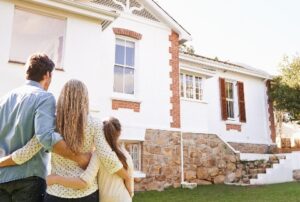
Sweltering Cities
The Home Safe report from the Climate Change Authority is a timely and sobering reminder of the urgent need to prepare our communities for the worsening impacts of climate change.
Sweltering Cities welcomes the report’s recognition that investment in climate adaptation and resilience pays dividends – not just financially, but in protecting our health, homes, and livelihoods. As the report makes clear: every dollar spent on adaptation can deliver significant benefits.
‘This report should be required reading for anyone considering approving new coal and gas projects,’ said Emma Bacon, Executive Director of Sweltering Cities. ‘It shows just a portion of the devastating cost of climate change to Australians, especially those living in hot homes, sweltering suburbs, and working in dangerous conditions.’
‘Through our work speaking to thousands of people facing extreme heatwaves and deadly summers across the country, we can already see the severe costs as people’s mental and physical health suffer. Too many people are dreading summers and the disasters ahead.’
‘The report rightly highlights that climate hazards don’t affect everyone equally. Without urgent action, the financial and health burden of climate change will fall hardest on people with the fewest resources: those in low-income households, poor-quality housing, and frontline jobs. Equitable adaptation isn’t a ‘nice to have’ option; it’s essential,’ said Emma Bacon, Executive Director of Sweltering Cities.
Key recommendations of the Climate Change Authority report include:
- Regular National Climate Risk Assessments and legislated National Adaptation Plans;
- Mandatory minimum energy efficiency standards for rental housing;
- Integration of adaptation planning across sectors such as health, housing, and justice;
- Reforming the National Construction Code to meet the reality of climate extremes.
‘These are practical and overdue reforms,’ said Ms Bacon. ‘We particularly welcome the focus on protecting people most at risk – including renters, outdoor workers, and people in poorly designed homes – and ensuring every level of government plays its part.’
However, the report also makes clear that adaptation has limits. ‘For many households, the risks they face may be extreme or unavoidable,’ it notes.
Australia must not rely on adaptation alone while continuing to expand fossil fuel projects that fuel the climate crisis. Studies have shown that even some individual coal and gas developments in Australia will push global temperatures higher and expose hundreds of thousands more people to deadly heat by the 2050s.
‘We already face massive adaptation challenges,’ said Ms Bacon. ‘Without a credible plan to phase out coal, gas and oil, every future Adaptation Plan or Climate Risk Assessment will paint an increasingly alarming picture. We must act now – not just to adapt to climate change, but to stop making it worse.’
Sweltering Cities is a national advocacy organisation working specifically on issues related to extreme heat. For more information, go to their website here https://swelteringcities.org/
Fintona Girls’ School Playgroup Blossoms in Balwyn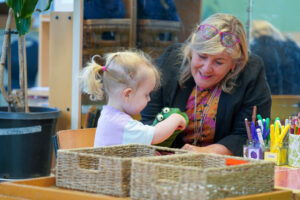
Families in the City of Boroondara, Balwyn and other nearby suburbs are discovering a standout option for early learning: the new playgroup at Fintona Girls’ School.
Catering to children aged 6 months to 3 years, the Fintona Playgroup offers a stimulating and nurturing environment that encourages early learning and social development. Sessions are held at the school’s specialist Early Learning Centre (ELC) on the Junior School Campus in Balwyn, making it a convenient choice for local families seeking a high-quality playgroup in the City of Boroondara and surrounding areas such as Canterbury, Doncaster, Surrey Hills and Kew.
Expert-Led Playgroup Sessions in Balwyn
Each Friday morning during term time, experienced educator Fran Hyde welcomes up to 15 young learners, each accompanied by a parent or guardian. The playgroup runs from 9.30am to 11.00am, providing a safe, engaging space for children to enjoy cooperative play and specialist activities.
‘Families experience firsthand the innovative programs offered by our ELC and gain valuable insight into what a day at Fintona might look like for their child,’ says Fran Hyde. ‘Having a Fintona educator lead the playgroup allows parents and caregivers to receive tailored advice about their child’s development and learning. It’s also a wonderful opportunity for children to meet other Fintona teachers, easing their transition into the ELC and Junior School.’
Building Community Connections in Boroondara
Local parent Michelle enrolled her daughter Amelie in the Fintona Playgroup to provide her with opportunities to socialise and grow in a supportive environment. ‘We’d heard consistently strong reviews about Fintona from other families in Balwyn and Boroondara, and we were keen to enrol Amelie in the playgroup because we have a view to enrolling her at the school for her future education,’ Michelle says.
‘The playgroup has been a fantastic way for Amelie to interact with peers and educators while getting comfortable in the school setting through playful, hands-on experiences – experiences I certainly could not replicate in the home environment.’
High Demand for Playgroups in Balwyn and Beyond
Due to overwhelming interest from families in Balwyn, Canterbury, and the wider Boroondara area, the Fintona Playgroup is fully booked for the remainder of 2025. The school is considering adding extra sessions to meet the growing demand for quality playgroups in the local community. Families interested in joining the waitlist for 2025 can register their interest online at Playgroup – Fintona Girls’ School.
Jackie Dimattina, Head of Junior Campus, says, ‘We’re always looking for ways to engage with and support our local community. Our new Rocketeers holiday program has also been hugely popular, and we welcome suggestions for future activities.’
Discover More About Fintona Playgroup
If you’re searching for a playgroup in Balwyn or nearby areas, Fintona Girls’ School Playgroup offers a unique, enriching environment that fosters each child’s natural curiosity, creativity and discovery-driven early learning through connections and play. To learn more or join the waitlist, visit Playgroup – Fintona Girls’ School.
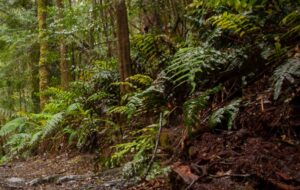 Labor dumps popular national park plan
Labor dumps popular national park plan
Victorian National Parks Association
The Allan Labor Government has dumped long-standing plans for a new Great Forest National Park in Victoria’s Central Highlands.
Environment Minister Steve Dimopoulos used his address to the recent ETU delegates conference to publicly rule out the park, blindsiding conservationists, scientists, and Yarra Ranges locals who have spent more than a decade campaigning for it.
The backflip has drawn fierce criticism from environmental groups, who say the decision overrides public consultation, ignores expert advice, and caves in to narrow vested interests.
The Minister’s remarks pre-empt two major government-commissioned reports: a 2023 ecological assessment that found the Central Highlands forest worthy of national park protection, and the findings of an Eminent Panel for Community Engagement initiated in 2021 but yet to report publicly.
Polling conducted by RedBridge shows four in five Victorians support the creation of new national parks, with lower-income households among the most frequent park visitors due to their affordability, safety, and accessibility.
The Great Forest National Park proposal has been backed by global conservation icons including Sir David Attenborough, Jane Goodall, and Bob Irwin, father of the late Steve Irwin.
Despite this, the Allan Government’s withdrawal of support was quietly released via Field & Game Australia’s social media – an organisation that has long opposed new protected areas.

Australian Human Rights Awards 2025
Australian Human Rights Commission
The search is on to find Australia’s leading human rights defenders and advocates who strive to improve the lives of people across the country. Don’t miss this chance to help your human rights heroes get the recognition they deserve. You can nominate a person or organisation for:
- Human Rights Medal
- Law Award
- Media & Creative Industries Award
- Community Award
- Young People’s Award
Big or small, we want to showcase their work to champion equality and justice for all. Nominating is free and easy and can be anonymous.
Nominations close on Monday 18 August 2025.
Find out more on the Australian Human Rights Commission website here; awards@humanrights.gov.au. Contact us if you have questions or need support to submit a nomination.
U3A Ringwood Marks 40 Years of Lifelong Learning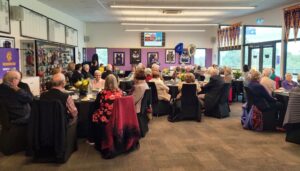
U3A Ringwood has proudly celebrated its 40th anniversary, marking four decades of offering affordable, accessible learning and social opportunities for people in their third age of life.
Founded in March 1985, just one year after U3A began in Melbourne, U3A Ringwood was among the first of its kind in Victoria. The group officially held its first classes on 17 June 1985 and has since grown into a vibrant hub for education, connection, and community involvement.
To commemorate this milestone, members and guests gathered for a celebratory luncheon at the Norwood Sporting Club. The event was well attended by current members and several special guests, including Mayor Cr. Kylie Spears; Deputy Mayor Cr. Linda Hancock; Matt Gregg, MP for Deakin; Brandi Craig, representing MP Nick McGowan; and Russ Haines, President of the Ringwood Historical Society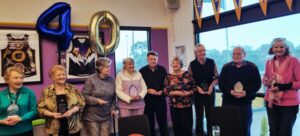
President Daryl James welcomed guests and recognised the incredible contribution of ten volunteer tutors who have each given over a decade of service. The honourees were Jill Cowie, Jennie Harvie, Alastair McCracken, Jim Moroney, Irene Pomeroy, Alex Robertson, Mary Semple, Ruth Seferth, Vicky Torresan, and Ken Yelland.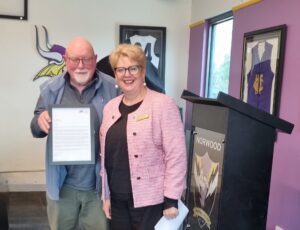
The afternoon featured a delicious lunch, followed by an informative and entertaining talk by Russ Haines on the history of Ringwood. A highlight of the event was the presentation of a commemorative plaque to U3A Ringwood by Mayor Spears, acknowledging the organisation’s lasting impact on the local community.
The afternoon continued with a lot of chat and discussions which was easier after a glass of wine or two. All in all a very enjoyable day with lots of thanks to the organizers and attendees and may we grow and prosper over the next 40 years.
If you’re interested in joining this friendly community and exploring the variety of activities available, you can contact U3A Ringwood at 0481591224 or via email at info@u3aringwood.org.au. For more information, go to our website here.
Opening Doors: Real Work Experience for Neurodivergent Teens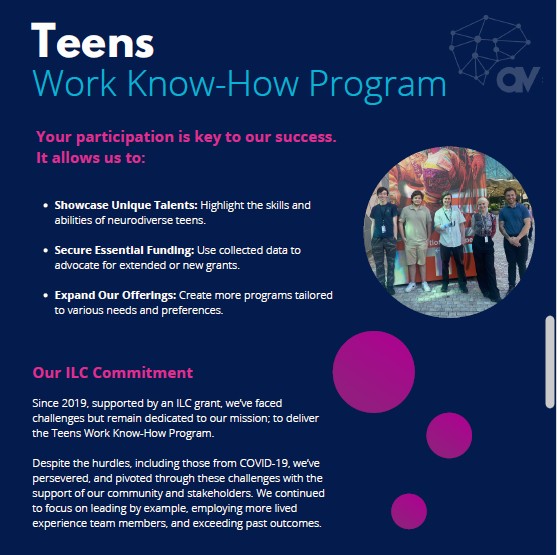
Jacob Alan Kness
For many high school students, work experience is a milestone – a first glimpse into the world beyond school. But for autistic and neurodivergent teens, this rite of passage is often missed due to misunderstanding, lack of support, or low expectations.
The Teens Work Know-How Program, run by Aspergers Victoria, is a unique initiative designed to bridge this gap. Now entering its sixth year, the program pairs neurodivergent students with inclusive workplaces for a structured, supported placement experience. The goal is simple but powerful: build confidence, capability and connection between students and the working world.
Work placements take place during the second week of the April and September school holidays, across four days: Monday, Tuesday, Thursday and Friday. Wednesday is intentionally kept free to provide rest and reflection, supporting energy regulation – something often overlooked in traditional work experience models.
Participants are matched with employers based on their interests and strengths. Prior to their placement, they engage in tailored workshops to prepare for workplace communication, expectations, and problem-solving. Meanwhile, host employers receive training and support to ensure the experience is constructive for both student and supervisor.
The program was co-designed by a team of autistic professionals, led by me – someone who left school early because it didn’t meet my needs. I now lead employment strategy and innovation at Aspergers Victoria, and work alongside employers, schools, and support services to build practical pathways into inclusive work.
This program is not about charity or ticking a diversity box. It’s about shifting systems that were not built for neurodivergent minds – and giving young people the chance to explore who they are when supported to thrive.
The need is clear. According to the Australian Bureau of Statistics (2022), only 38% of autistic Australians are employed. This is not due to lack of interest or skill, but to a persistent mismatch between potential and opportunity. The Teens Work Know-How Program is changing this – one placement at a time.
We are currently welcoming expressions of interest from local employers to participate in our 2026 program and beyond. Hosts may be small businesses, creative studios, government offices, or national firms – what matters most is a willingness to learn and offer a safe, respectful space.
The benefits to employers are tangible. Many past hosts have reported improved team morale, stronger communication practices, and a better understanding of what inclusive employment really looks like. One host shared, ‘We thought we were doing this to help a student. But we ended up learning so much ourselves.’
Aspergers Victoria also offers broader employment support across the lifespan, including our Jobseeker Network, Coaching, Peer Mentoring, and Employer Consultancy. To learn more or register your interest as a host, visit www.aspergersvic.org.au/teens-work-know-how-program or email programs@aspergersvic.org.au.
Jacob Alan Kness is the Employment Programs Manager at Aspergers Victoria. A social enterprise founder and lived experience advocate, he works to redesign employment systems that empower, not exclude.


